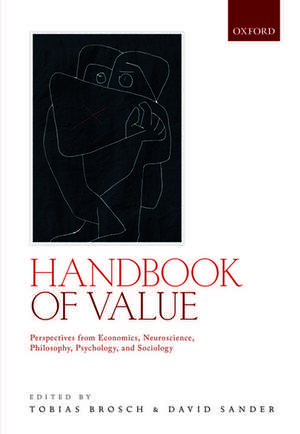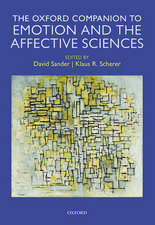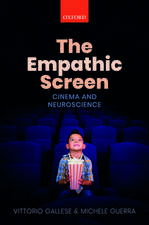Handbook of Value: Perspectives from Economics, Neuroscience, Philosophy, Psychology and Sociology
Editat de Tobias Brosch, David Sanderen Limba Engleză Hardback – 29 oct 2015
Preț: 708.46 lei
Preț vechi: 999.72 lei
-29% Nou
Puncte Express: 1063
Preț estimativ în valută:
135.58€ • 141.03$ • 111.93£
135.58€ • 141.03$ • 111.93£
Carte disponibilă
Livrare economică 14-20 martie
Preluare comenzi: 021 569.72.76
Specificații
ISBN-13: 9780198716600
ISBN-10: 0198716605
Pagini: 432
Dimensiuni: 184 x 249 x 30 mm
Greutate: 0.95 kg
Editura: OUP OXFORD
Colecția OUP Oxford
Locul publicării:Oxford, United Kingdom
ISBN-10: 0198716605
Pagini: 432
Dimensiuni: 184 x 249 x 30 mm
Greutate: 0.95 kg
Editura: OUP OXFORD
Colecția OUP Oxford
Locul publicării:Oxford, United Kingdom
Recenzii
Highly accessible and wide-ranging, this book is an important resource for scientists, students and professionals who are eager to obtain a rapid, conclusive overview of central terms and topics in the field of emotion and affect and the mechanisms underlying these aspects dominating wide areas of our lives
Notă biografică
Tobias Brosch, born in 1978, studied psychology at the Universities of Trier (Germany) and Canterbury (UK), and received a Ph.D. in Psychology from the University of Geneva (Switzerland). After several years of postdoctoral studies at New York University (USA) he returned to the Department of Psychology at the University of Geneva, where he is now Assistant Professor of Psychology and Director of the Consumer Decision and Sustainable Behavior Lab. His main research and teaching activities concern the influence of values and emotions on decision-making, and how these can be leveraged to promote sustainable behavior.David Sander, born in 1976, studied mathematics and psychology at the University René Descartes (Paris, France), and received a PhD in Cognitive Sciences from the University Louis Lumière (Lyon, France). In 2002, he joined the Department of Psychology at the University of Geneva (Switzerland), where he is now Full Professor and holds the Chair for Emotion Psychology. His main research and teaching activities concern the mechanisms involved in emotion elicitation and how these mechanisms modulate attention, memory, and decision-making. For this work, he is the recipient of the 2013 National Latsis Prize. David Sander is the Director of the Swiss Center for Affective Sciences.



















